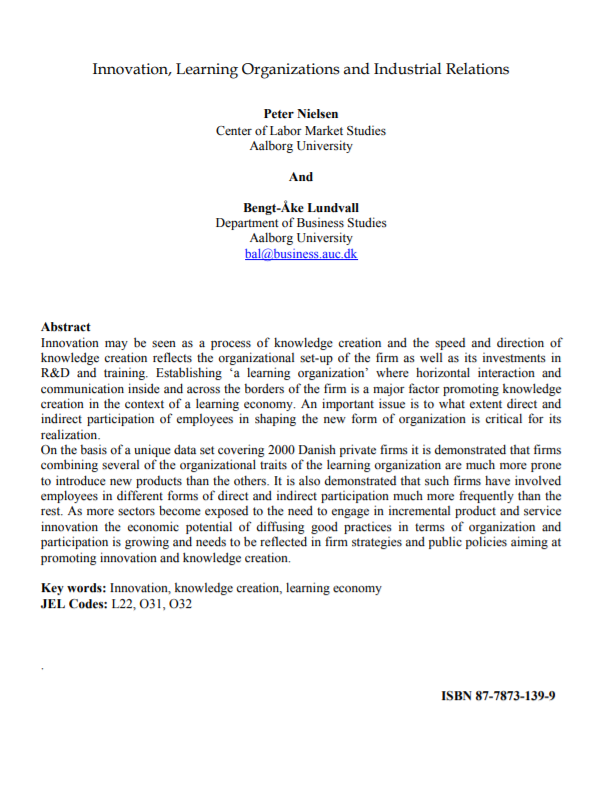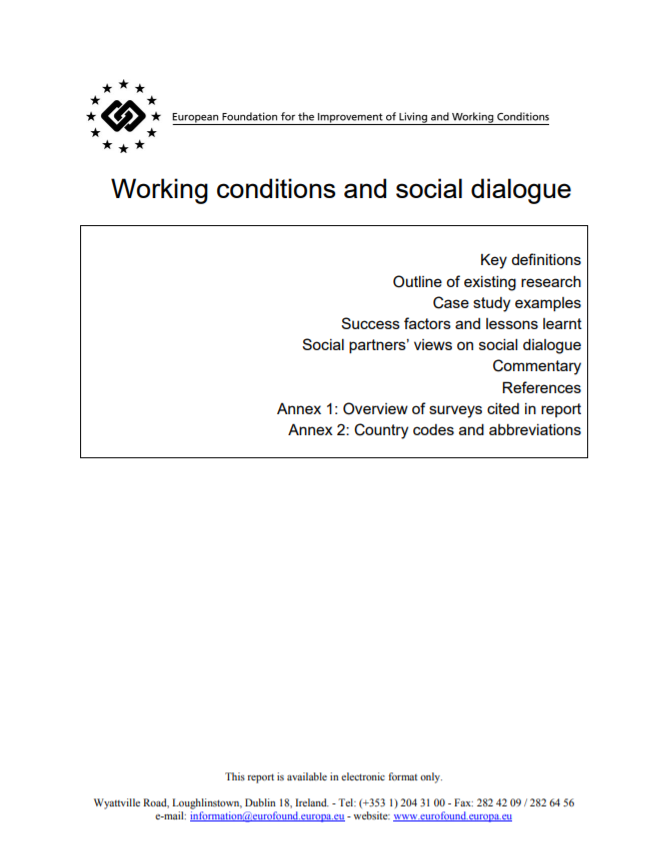
Abstract
Innovation may be seen as a process of knowledge creation and the speed and direction of knowledge creation reflects the organizational set-up of the firm as well as its investments in R&D and training. Establishing ‘a learning organization’ where horizontal interaction and
communication inside and across the borders of the firm is a major factor promoting knowledge creation in the context of a learning economy. An important issue is to what extent direct and indirect participation of employees in shaping the new form of organization is critical for its realization. On the basis of a unique data set covering 2000 Danish private firms it is demonstrated that firms combining several of the organizational traits of the learning organization are much more prone to introduce new products than the others. It is also demonstrated that such firms have involved employees in different forms of direct and indirect participation much more frequently than the
rest. As more sectors become exposed to the need to engage in incremental product and service innovation the economic potential of diffusing good practices in terms of organization and participation is growing and needs to be reflected in firm strategies and public policies aiming at promoting innovation and knowledge creation.
For the original source, please click here.
